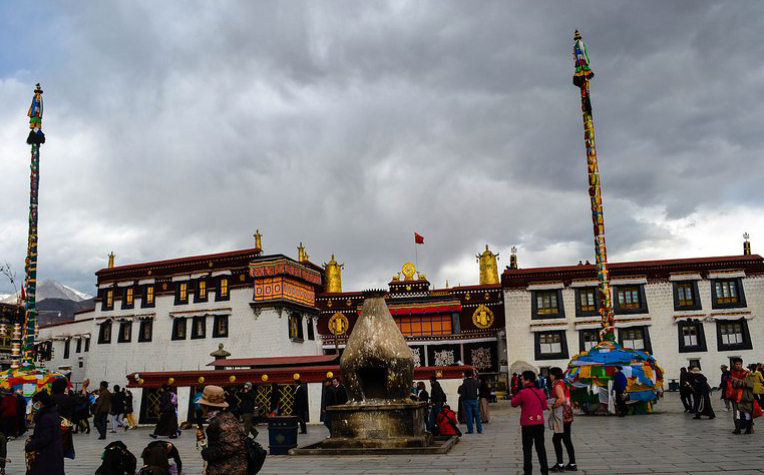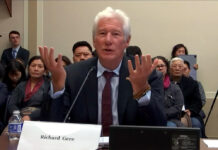
(TibetanReview.net, Dec13, 2018) – China said Dec 11 that it had launched in Tibet’s capital Lhasa a five-year training programme for Tibetan Buddhism teaching staff with the aim to better adapt Tibetan Buddhism to socialist society, which is part of the sinicization of religion drive reemphasized during the 19th Communist Party of congress in Oct 2017. The report said the religious teachers will be taught that religion must give way to state and government policies, which often undermine religious beliefs and practices for political reasons. A three-year programme was also launched to train government officials assigned to run and manage temples.
The training’s opening session was held Dec 10 at the Tibet Socialism College. Monks and nuns participating in the programme will study national policies, laws and regulations, history and culture, modern knowledge and religious learning, reported the official globaltimes.cn Dec 11.
The report quoted Danke, head of the United Front Work Department of the Tibet Autonomous Regional Committee of the Communist Party of China, as saying, “A special textbook was compiled for the course, as monks and nuns are expected to firmly set up the concept that government power is higher than religious power, and that national laws are above religious rules.”
The report cited Xiong Kunxin, an ethnic studies professor at Tibet University in Lhasa, as saying some Tibetan monks and nuns only had a vague or no understanding of these topics, which could lead to illegal activities without them even realizing.
It also cited Li Decheng, a research fellow at the China Tibetology Research Center, as saying Tibetan Buddhism teaching staff, consisting of people in the Tibetan Buddhist world, could spread this knowledge, noting that they were closer to local people than officials and therefore would be more effective.
Danke, apparently an ethnic Tibetan, was reported to expect the Tibetan religious people to integrate their religious doctrines into Chinese culture, link religious rules to national laws and adapt religious activities that suit the social needs, calling them part of the socialism construction work in Tibet.
The report said that on the same day, another training course meant for government officials assigned to Tibetan temples was launched at the same venue.
Danke has said these officials will undergo a three-year training meant to improve their personal ability, boost the management of temples and contribute to maintaining harmony and stability in the religious field.
Xiong has said that after the training, regional officials will better serve the monks and nuns and guide them to conduct daily religious affairs in accordance with Chinese laws and regulations.
The report noted that Tibet Autonomous Region had more than 1,700 religious sites with more than 46,000 Buddhist monks and nuns in-residence, citing a Xinhua News Agency report in 2017.





